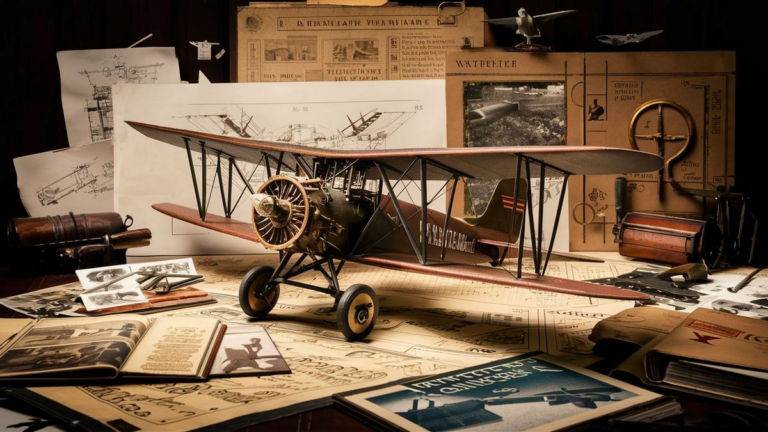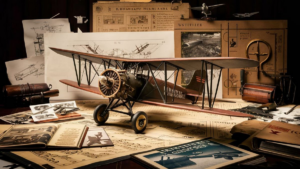Discovering the motivation behind the Wright brothers’ invention of the airplane delves into the realms of ambition, innovation, and the pursuit of human flight. It’s a tale that intertwines scientific curiosity with a relentless desire to conquer the skies, forever changing the course of history.
The Genesis of a Dream
Wilbur and Orville Wright, hailing from Dayton, Ohio, were driven by an insatiable curiosity for the mysteries of flight. Their fascination with kites and gliders laid the groundwork for their groundbreaking endeavors. As children, they were captivated by the flights of birds and dreamt of soaring amongst them.
The Quest for Freedom
One of the primary driving forces behind the Wright brothers’ invention was the innate human desire for freedom. They envisioned the airplane as a means to transcend the confines of earthly limitations, to explore the vast expanses of the sky, and to defy gravity itself.
Pushing the Boundaries of Innovation
The Wright brothers were relentless innovators, constantly pushing the boundaries of what was deemed possible. Through meticulous experimentation and rigorous testing, they sought to unravel the secrets of controlled, powered flight.
Conquering the Skies
For the Wright brothers, inventing the airplane was not merely a scientific endeavor but a quest to conquer the skies. They envisioned a future where humanity could travel effortlessly through the air, transcending distances and connecting the world in ways previously unimaginable.
Revolutionizing Transportation
Beyond their personal aspirations, the Wright brothers recognized the transformative potential of their invention on a global scale. They foresaw the airplane as a revolutionary mode of transportation, capable of shrinking vast distances and facilitating communication and commerce.
Shaping the Future
By inventing the airplane, the Wright brothers laid the foundation for a new era of human civilization. Their innovation sparked a technological revolution, paving the way for advancements in aviation that would shape the course of history for generations to come.
Legacy of Inspiration
The legacy of the Wright brothers continues to inspire dreamers and innovators worldwide. Their unwavering determination and pioneering spirit serve as a reminder that with perseverance and imagination, anything is possible.
The Role of Risk-taking
Embedded within the Wright brothers’ pursuit of flight was an acceptance of risk. They understood that innovation often comes with uncertainty and danger. Despite facing numerous setbacks and even accidents during their experiments, they persisted, driven by their unwavering belief in the possibility of controlled flight.
Engineering Challenges
One of the significant hurdles the Wright brothers faced was overcoming engineering challenges. From designing efficient propellers to developing lightweight yet sturdy materials for their aircraft, they tackled a myriad of technical obstacles with ingenuity and perseverance.
Fostering Collaboration
While the Wright brothers are often celebrated as individual pioneers, their success was also reliant on collaboration. They worked closely with a team of mechanics, engineers, and other experts, pooling together diverse skills and knowledge to achieve their shared goal of powered flight.
| Aspect | Importance |
|---|---|
| Risk-taking | Embracing uncertainty |
| Engineering Challenges | Technical obstacles |
| Fostering Collaboration | Teamwork and expertise |
Frequently Asked Questions
- What motivated the Wright brothers to invent the airplane?
- How did the Wright brothers overcome engineering challenges?
- Who else was involved in the Wright brothers’ journey towards flight?
See also:






